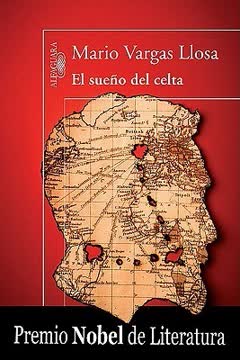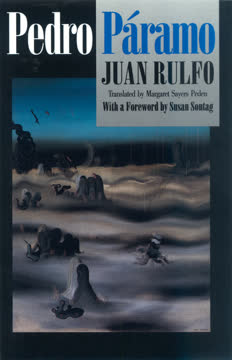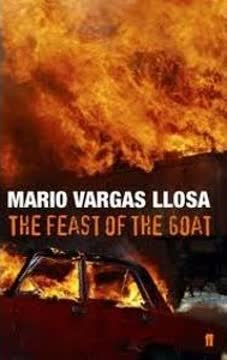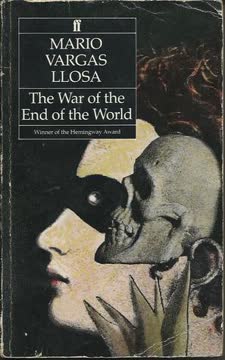Plot Summary
Prisoner in Pentonville
Roger Casement, once a celebrated British diplomat, now sits in Pentonville Prison, condemned for treason. The cold, the silence, and the uncertainty gnaw at him as he awaits the decision on his appeal for clemency. Visits from friends and family are tinged with desperation and sorrow, while the guards' contempt is palpable. The discovery and public dissemination of his private diaries, filled with explicit details of his sexuality, have turned public opinion against him, compounding his isolation. Casement's mind drifts between hope and resignation, haunted by memories and the knowledge that his life's work may be overshadowed by scandal and defeat.
Childhood's Divided Allegiances
Born in Dublin to a Protestant father and a secretly Catholic mother, Casement's early years are marked by conflicting loyalties. His father, a stern British officer, instills in him pride in the Empire and the Protestant tradition, while his mother, gentle and loving, secretly baptizes him Catholic and nurtures his Irish identity. The death of his mother leaves a void that shapes his emotional life, and the subsequent loss of his father deepens his sense of orphanhood. Raised among relatives in Ulster and Liverpool, Casement is drawn to stories of adventure and the wider world, but also to the landscapes and legends of Ireland, sowing the seeds of a lifelong internal conflict.
Africa's Allure and Disillusion
As a young man, Casement is captivated by the myth of the civilizing mission of empire. He joins expeditions to Africa, inspired by explorers like Livingstone and Stanley, believing in the promise of commerce, Christianity, and civilization. The reality he encounters is far grimmer: the exploitation and brutalization of African peoples under colonial rule, especially in the Congo Free State, where the quest for rubber and profit leads to widespread atrocities. Casement's initial faith in the Empire is shaken as he witnesses firsthand the suffering inflicted in the name of progress.
Congo: Witness to Atrocity
Appointed British consul in the Congo, Casement undertakes a harrowing journey upriver to investigate reports of abuse. He documents the systematic violence: forced labor, mutilations, and mass deaths among the Congolese, all driven by the insatiable demand for rubber. His meticulous reports, later known as the Casement Report, expose the crimes of King Leopold II's regime to the world. The experience leaves Casement physically and psychologically scarred, and fundamentally alters his view of imperialism, transforming him from a servant of the Empire into a critic and activist.
The Price of Progress
Casement's investigations reveal the mechanisms by which colonial powers maintain control: treaties signed under false pretenses, the use of local intermediaries and brutal militias, and the complicity of European business interests. He sees how the rhetoric of civilization masks a system built on violence, greed, and dehumanization. Encounters with figures like Henry Morton Stanley and King Leopold II reveal the moral blindness and self-justification of those in power. Casement's growing disillusionment is matched by a deepening empathy for the victims of empire.
The Awakening of Conscience
Haunted by what he has seen, Casement becomes a leading voice in the international campaign against the Congo atrocities, working alongside activists like Edmund Morel and Alice Stopford Green. His reports spark outrage and lead to reforms, but also make him enemies. The experience radicalizes him, and he begins to draw parallels between the plight of colonized Africans and that of his own homeland, Ireland. Casement's sense of justice and his identification with the oppressed set him on a new path, away from the Empire and toward Irish nationalism.
The Amazonian Inferno
Casement's next mission takes him to the Amazon, where he investigates abuses by the Peruvian Amazon Company against indigenous peoples in the Putumayo region. The horrors he uncovers—slavery, torture, and mass killings—mirror those of the Congo. His reports once again bring international attention to the crimes of empire, but the machinery of impunity proves resilient. Casement's health deteriorates under the strain, and he is left with a profound sense of the limits of reform and the persistence of evil.
The Machinery of Exploitation
In both Africa and South America, Casement observes how colonial and corporate interests perpetuate violence through legal fictions, economic dependency, and the corruption of local authorities. Attempts at reform are undermined by vested interests and the inertia of bureaucracy. Casement's efforts to rescue individual victims, such as indigenous children, are met with indifference or hostility. The cycle of exploitation seems unbreakable, and Casement's reports, though celebrated, cannot halt the destruction.
The Making of a Rebel
Disillusioned with the Empire, Casement turns his energies to the cause of Irish independence. He becomes involved with the Gaelic League, Sinn Féin, and the Irish Volunteers, forging alliances with poets, teachers, and activists. His experiences abroad convince him that Ireland, like the Congo and the Amazon, is a colony whose liberation will require sacrifice and struggle. Casement's speeches and writings inspire many, but also attract the attention of British authorities, who begin to monitor him as a subversive.
Ireland's Unfinished Revolution
As the Home Rule crisis deepens and World War I looms, Casement becomes convinced that only armed rebellion can secure Ireland's freedom. He travels to the United States and Germany, seeking support for an uprising. The divisions within Irish nationalism—between moderates and radicals, Catholics and Protestants, constitutionalists and revolutionaries—mirror the fractures he has seen in other colonial contexts. Casement's efforts to secure German aid are fraught with disappointment and betrayal, as realpolitik trumps idealism.
Allies and Betrayals
In Germany, Casement's attempts to raise an Irish Brigade from among prisoners of war falter, and his negotiations for arms and support are met with duplicity and delay. He is increasingly isolated, both physically and politically, as former allies distance themselves and suspicions about his motives grow. The presence of spies and double agents, including his own assistant, Eivind Christensen, adds to the atmosphere of mistrust. Casement's health and morale decline, but he remains determined to do what he can for Ireland.
The Dream of Independence
Casement returns to Ireland by submarine, hoping to avert a doomed rebellion, but is captured upon landing. The Easter Rising erupts in Dublin, a heroic but tragic stand that ends in defeat and the execution of its leaders. Casement's role is misunderstood by both the British and many Irish, and he is put on trial for treason. The Rising, though a military failure, becomes a powerful symbol of Irish resistance, and Casement's name is forever linked to the struggle for freedom.
The Easter Rising's Tragedy
In prison, Casement reflects on the events that led to the Rising, the divisions among the rebels, and the meaning of sacrifice. He is tormented by the knowledge that his efforts to prevent a futile bloodbath failed, and that his own actions are seen as betrayal by some and heroism by others. The executions of his comrades, the suffering of their families, and the ambiguous legacy of the rebellion weigh heavily on him. Yet he finds solace in the idea that martyrdom can inspire future generations.
The Trial and the Diaries
Casement's trial is a foregone conclusion, but the British government ensures his execution by circulating his private diaries, filled with explicit accounts of homosexual encounters, to destroy public sympathy and discredit the cause he represents. Friends and supporters are shocked and divided; some abandon him, while others remain loyal. The authenticity of the diaries becomes a matter of controversy, but their impact is devastating. Casement faces his fate with dignity, refusing to renounce his beliefs or betray his comrades.
Final Hours and Faith
In his last hours, Casement is attended by Catholic priests, including Father Carey, seeking spiritual comfort and reconciliation with his mother's faith. He writes farewell letters, confesses his sins, and prepares for execution. Memories of childhood, lost friends, and the landscapes of Ireland mingle with reflections on justice, suffering, and the meaning of his life. He finds a measure of peace, accepting his fate as the price of fidelity to his conscience and his country.
Legacy in Shadow and Light
Casement's execution is followed by decades of controversy and silence. The British refuse to return his remains to Ireland, and the scandal of the diaries overshadows his achievements. Yet over time, his role as a champion of human rights and a martyr for Irish independence is gradually recognized. The ambiguity of his life—his contradictions, his failures, his courage—becomes part of his legacy. In the end, Casement stands as a symbol of the struggle against oppression, the complexity of identity, and the enduring power of conscience.
Characters
Roger Casement
Casement is a man of profound contradictions: a British knight and Irish nationalist, a diplomat and a revolutionary, a humanitarian and a condemned traitor. His early faith in the Empire is shattered by the horrors he witnesses in the Congo and Amazon, leading him to become a passionate advocate for the oppressed. Psychologically, he is marked by loss, loneliness, and a restless search for belonging. His sexuality, kept secret and later weaponized against him, adds another layer of alienation. Casement's journey is one of moral awakening, disillusionment, and ultimately, sacrifice for a cause greater than himself. His development is a movement from naïve idealism to tragic clarity, and his relationships—with family, friends, and enemies—are shaped by both empathy and a sense of isolation.
Alice Stopford Green
An Anglo-Irish historian and activist, Alice is Casement's confidante and guide in the world of Irish nationalism. She introduces him to the cultural and historical roots of Ireland's struggle, encouraging his embrace of the Gaelic revival and radical politics. Alice is rational, compassionate, and fiercely loyal, providing emotional and intellectual support even as she questions some of Casement's choices. Her psychoanalytic role is that of the nurturing mother and wise counselor, helping Casement reconcile his divided identity and find meaning in his suffering.
Edmund D. Morel
Morel is Casement's partner in the campaign against the Congo atrocities, a tireless journalist and activist whose sense of justice matches Casement's own. Their relationship is one of mutual respect and shared purpose, though it is tested by political disagreements and the pressures of public life. Morel's steadfastness and clarity of vision serve as a counterpoint to Casement's emotional volatility, and his eventual distance from Casement reflects the corrosive effects of scandal and political division.
Herbert Ward
Ward is Casement's closest companion during his years in Africa, a fellow adventurer who later becomes a sculptor. Their friendship is marked by deep affection, intellectual exchange, and occasional ideological clashes, especially over nationalism and the meaning of patriotism. Ward's cosmopolitan outlook and artistic sensibility provide Casement with both inspiration and a critical mirror, highlighting the tensions between universal ideals and particular loyalties.
Patrick Pearse
Pearse embodies the mystical, sacrificial dimension of Irish nationalism. A teacher, writer, and charismatic orator, he is driven by a vision of Ireland's redemption through blood and martyrdom. His relationship with Casement is one of mutual admiration and debate, as Pearse's romanticism both inspires and unsettles Casement. Psychologically, Pearse is a figure of intense conviction, willing to embrace death for the sake of a symbolic victory.
Joseph Plunkett
Plunkett is a young, sickly intellectual whose passion for Ireland is matched by his willingness to die for its freedom. He collaborates with Casement in planning the Easter Rising and negotiating with Germany. Plunkett's embrace of martyrdom and his belief in the transformative power of sacrifice influence Casement's own understanding of the rebellion's meaning.
Robert Monteith
Monteith is Casement's right-hand man in Germany, a former British officer turned Irish revolutionary. His unwavering dedication, optimism, and practical skills provide Casement with much-needed support during the darkest periods of exile and intrigue. Monteith's presence highlights the importance of camaraderie and shared purpose in the face of adversity.
Eivind Adler Christensen
Eivind is Casement's Norwegian assistant and lover, whose duplicity as a British informant contributes to Casement's downfall. Their relationship is fraught with desire, trust, and ultimate betrayal, reflecting the dangers of intimacy in a world of espionage and suspicion. Eivind's actions exacerbate Casement's sense of isolation and the tragic irony of his fate.
Father Carey
Father Carey attends Casement in his final days, offering comfort, absolution, and a path to reconciliation with his mother's faith. His presence allows Casement to confront his fears, doubts, and regrets, and to find a measure of peace before death. As a psychoanalytic figure, Carey represents the possibility of forgiveness and the enduring power of faith.
King Leopold II / Julio C. Arana
Leopold II of Belgium and Julio C. Arana, the rubber baron of the Amazon, are the principal antagonists in Casement's investigations. Both are portrayed as ruthless, self-justifying exploiters whose pursuit of wealth leaves devastation in their wake. Their interactions with Casement reveal the moral blindness and systemic nature of colonial violence.
Plot Devices
Framing Narrative: Prison and Memory
The novel's structure alternates between Casement's final days in prison and extended flashbacks to his childhood, African and Amazonian experiences, and political awakening. This framing device allows for a deep psychological exploration of Casement's motives, regrets, and hopes, and creates a sense of impending doom that colors the entire narrative.
Testimony and Documentation
Casement's role as investigator and reporter is central: his meticulous gathering of evidence, interviews, and reports serve both as plot drivers and as meditations on the nature of truth, justice, and historical memory. The use of real documents—diaries, reports, letters—blurs the line between fiction and history, and raises questions about authenticity and manipulation.
The Black Diaries
The revelation and circulation of Casement's private diaries function as a devastating plot twist, transforming public perception and sealing his fate. The ambiguity surrounding their authenticity becomes a symbol of the ways in which personal and political narratives are constructed, contested, and weaponized.
Foreshadowing and Irony
Throughout the novel, there is a persistent sense of foreboding, as Casement's early hopes and achievements are gradually undermined by betrayal, misunderstanding, and the intransigence of power. The use of dramatic irony—Casement's belief in the possibility of reform, his trust in allies who will betray him, his efforts to prevent a doomed rebellion—heightens the tragedy and underscores the complexity of historical causality.
Symbolism: The Prison, the River, the Crossroads
The recurring motifs of imprisonment, rivers, and crossroads reflect Casement's psychological and moral journey. The prison is both a literal and metaphorical space of reckoning; rivers represent the flow of history and the possibility of change; crossroads symbolize the choices and ambiguities that define Casement's life.
Analysis
The Dream of the Celt is both a sweeping historical epic and an intimate psychological portrait, exploring the intersections of personal identity, political conviction, and the machinery of oppression. Through Casement's journey—from imperial servant to witness, from reformer to rebel—Vargas Llosa interrogates the myths of progress, the seductions and betrayals of power, and the enduring struggle for dignity in the face of overwhelming violence. The novel challenges readers to consider the ambiguities of heroism and the ways in which private lives are entangled with public causes. In an age still marked by colonial legacies and the weaponization of scandal, Casement's story remains a powerful reminder of the necessity—and the peril—of speaking truth to power, and of the human capacity for both greatness and frailty.
Última actualización:
Reseñas
The Dream of the Celt is a historical novel about Roger Casement, an Irish nationalist and human rights activist. The book explores Casement's experiences in Congo and Peru, where he exposed colonial atrocities, and his later involvement in the Irish independence movement. Reviews praise Vargas Llosa's detailed portrayal of Casement's life and the historical context, though some find the writing style dry at times. The novel is commended for its exploration of complex themes like colonialism, human rights, and personal identity. Overall, readers appreciate the book's historical significance and Vargas Llosa's storytelling.










